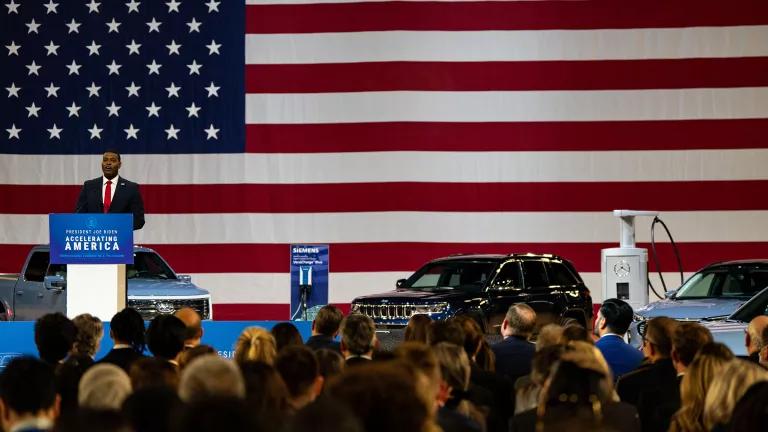A new American Lung Association poll conducted by Democratic polling firm Greenberg Quinlan Rosner and GOP pollster Ayres McHenry examining the American public’s views on protecting public health from pollution offers the most robust findings on where Americans are at on the issue: a bipartisan cross section want the EPA to be able to do its job protecting public health from pollution and oppose efforts to derail the EPA.
As Congress considers extreme cuts to the very programs that keep our air and water safe to breathe and drink, the ALA poll findings are particularly pertinent. Here’s a few of the findings:
- 69% of voters support updating standards with stricter limits on air pollution, including 88% of Democrats and 68% of Independent voters.
- 60% of voters say Congress should NOT stop the EPA from updating standards on carbon pollution, including 62% of Independent voters.
- And in general, the poll finds that 69% of voters think that scientists should set pollution standards rather than Congress.
Or as the Democratic and GOP pollsters sum it up:
In a memo sent to the American Lung Association from Mike Bocian and Andrew Bauman of Greenberg Quinlan Rosner Research, and Jon McHenry and Dan Judy of Ayres of McHenry and Associates, the pollsters wrote: "The survey clearly indicates that voters strongly trust the EPA to deal with clean air standards more than Congress. A bipartisan 69 percent majority believes that EPA scientists, rather than Congress, should set pollution standards. This is despite opposing language arguing that our elected representatives in Congress would do a better job than 'unelected bureaucrats at the EPA.
You can see the ALA survey results here: http://www.lungusa.org/healthy-air/outdoor/resources/clean-air-survey.html.
Also, Harris Interactive is releasing a poll today that finds that while voters want a trimmer budget, they are not enthusiastic about cutting the programs that protect public health from pollution. Fifty-four percent of Americans oppose budget cuts that would result in fewer pollution controls. Interestingly, this is a significant increase from when Harris last asked the question in 1980, when only 37% of Americans opposed budget cuts that would result in fewer pollution controls.
Both of these polls are highly consistent with the polling NRDC has done recently at the national level and in specific Congressional districts.



